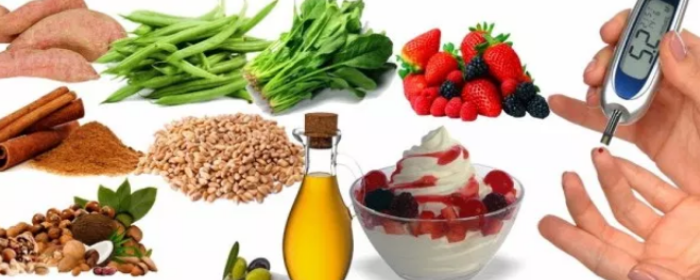Making necessary diet changes to keep the blood sugar levels under control is key especially for those with diabetes. Focus on consuming foods that improve your condition and keep your diabetes under control. There are some key foods identified by researchers that are known to improve the condition and reduce the risk:
Blueberries
The tiny berries are a source of daily good carbs and research also shows that eating blueberries improves sensitivity to insulin. The phytochemicals present in blueberries also have special anti-inflammatory properties that are known to reduce the risk of cardiovascular diseases especially the ones associated with diabetes type 2.
Oranges
Incorporate more clementines, grapefruits, and oranges in your daily diet. Research shows that consuming citrus fruits can have a long-term positive effect on blood sugar and cholesterol levels. Research conducted at Harvard University showed that consuming the whole fruit with the pulp rather than just the juice reduces the risks of diabetes type 2. This is due to the presence of their soluble fiber and the compound called hesperidin which is an anti-inflammatory by nature.
Dark Chocolate
Is it possible that a sweet treat like chocolate can control glucose levels? Yes, studies show that high-quality dark chocolate if consumed daily can decrease blood pressure and fasting insulin levels. This is achieved due to the presence of the compound called polyphenols. Try replacing unhealthy carbs with a high-quality low sugar dark chocolate to improve the glucose levels while also satisfying your taste buds.
Chickpeas
Chickpeas are quite well-known for having a low glycemic index, making it very beneficial for diabetes. New research also suggests that consuming legumes has a very therapeutic effect on the body. Compared to others, people who consume a cup of legumes daily showed a significant decrease in blood pressure and hemoglobin values.
Olive Oil
Replacing unhealthy fats with good healthy fats is suggested for everybody but especially for those who have diabetes type 2. Consumption of extra virgin olive oil has been proven to be associated with the decreased risk of diabetes and improves glucose levels because of its anti-inflammatory properties. Try to incorporate olive oil as much as possible in your diet like including it as a dressing for your salads.
Plant-Based Meals
It is observed that vegetarians have a lower risk of diabetes 2 development. A study published in 2012 showed that a diet that is mainly centered around fresh fruits, nuts, vegetables, and legumes has a major positive effect on people who are diabetic. Some participants who strictly followed this diet showed a significant decrease in hemoglobin type A1, blood pressure, HDL levels, and triglycerides. Almost 60% of the participants resulted with glucose levels within the normal range.
Green Vegetables
Diabetes patients who had a high intake of non-starchy leafy green vegetables showed a significant decrease in the levels of hemoglobin and risk of cardiovascular diseases. Advanced research is being carried out to see whether these effects were specifically due to the presence of vitamins A, C, and E in the dense green leafy vegetables. It is also observed that best results were obtained when people consumed a minimum of 200 grams of vegetables daily. This included around 70g of green vegetables.
Nuts and Peanut Butter
Having 5 servings of nuts a week showed a major reduction in the stroke risk and heart disease in women with diabetes type 2. A study published also showed that diabetic patients consuming 2 ounces of nuts daily as a substitute to regular carbohydrates had improved blood sugar levels and blood lipids. Try incorporating daily carbs like almonds, walnuts and peanut butter instead of unhealthy carbs. Be sure to watch the sodium intake and portion size.
Probiotics
Many studies have shown that including good bacteria in your diet has a positive effect on glucose regulation. Consuming food such as probiotic yogurt significantly improves the HgbA1 and glucose levels when consumed for eight weeks or longer.
Cinnamon
Cinnamon increases the sensitivity to insulin which in turn reduces blood sugar. The science behind how this spice does the job is still under study however, a majority of the studies conducted thus far have shown cinnamon as an aid to controlling the glucose level of blood if consumed regularly and long term. You can incorporate cinnamon in your diet by sprinkling it on foods you regularly eat like nuts, oatmeal, butter and yogurt.


 St. Petersburg, Florida
St. Petersburg, Florida
